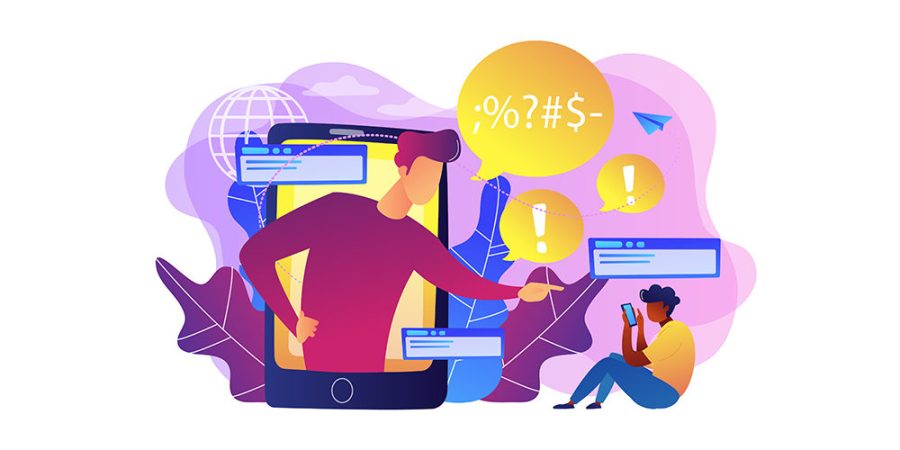Harassment has no place in the public forum
Courtesy of Campus Safety Magazine
Almost half of American adults say they have faced harassment online in 2021.
April 14, 2022
Recently, a fourth-year medical student at Wake Forest School of Medicine, Kychelle Del Rosario, was placed on a leave of absence “as a result of [an] inappropriate and misleading post”, according to an official statement from the School of Medicine. In response, both local and national media have been covering this significant issue, with many internet and news personalities providing their opinions on the matter.
While we have not and will not provide an editorial comment on the matter, the Old Gold & Black has also provided coverage of this event in the form of both an objective news article and an opinion column from an undergraduate student. The opinion column that was published received a substantial amount of hateful comments, as well as personal attacks directed toward the columnist. The column was also referenced in the Daily Mail, a British newspaper tabloid, as well as Fox News.
What has happened in response to the opinion column published is not different from what has occurred in the hotbed of political discussion everywhere else on the internet. The problem is that this new medium allows individuals to express their worst thoughts and motivations without consequences. The truth is that if the majority of hate speech and derisive comments that exist on the internet were legitimate and defensible opinions, then the individuals responsible wouldn’t be afraid to put their public identities behind them.
According to a 2021 Anti-Defamation League survey, 41% of Americans who responded said they had experienced some form of online harassment within the year. According to a 2021 Pew study, 20% of Americans overall said they have experienced online harassment because of their political views.
These statistics, and many others, show that the American public forum is not always a safe place for discussion. Although public spaces have never been completely safe — and controversial public opinions never undeserving of contentious dialogue — we have never been at a more dangerous mode of societal discussion than we are now.
There doesn’t appear to be a clear-cut solution to this issue. And it is no longer solely a matter of “fixing” someone’s individual character.
However, as citizens of a democratic society, we have a moral obligation to respect each other. Even if you recognize an individual’s right to an opinion different from your own, respect isn’t shown by attempting to attack that person’s character and life in response. We will only reach progress on an issue when both sides argue in a space of accountability and civility.















Alexander Marshall • Apr 20, 2022 at 6:00 pm
I concur that the harassment is unacceptable. But the opinion article did not, quite frankly, meet any reasonable standard for journalism.
When a med student publicly brags about harming a patient over their political beliefs and violating their ethical duties, calling for the student who was seemingly wronged to be compelled to undergo ideological reeducation is not an acceptable view for any established newspaper to endorse via publication, let alone that of the individual’s alma mater.
The “factual” news piece was also pretty heavily slanted in support of the student.
In short, yes, political polarization is bad, as is harassment. But we ought to keep in mind that this is how the whole debacle started, after all, when a med student trumpeted about physically harming a patient they disagreed with while the OGB metaphorically cheered them on. Rather than focusing on the rudeness of modern discourse, instead I recommend that the OGB remember that they have not been stuck by a needle to the best of my knowledge, and instead of complaining re-evaluate their quality control methods to avoid more embarrassing lapses like those of the last few weeks.
DocL • Apr 21, 2022 at 12:40 pm
Articulate and well reasoned commentary on the handling of the matter by OGB.